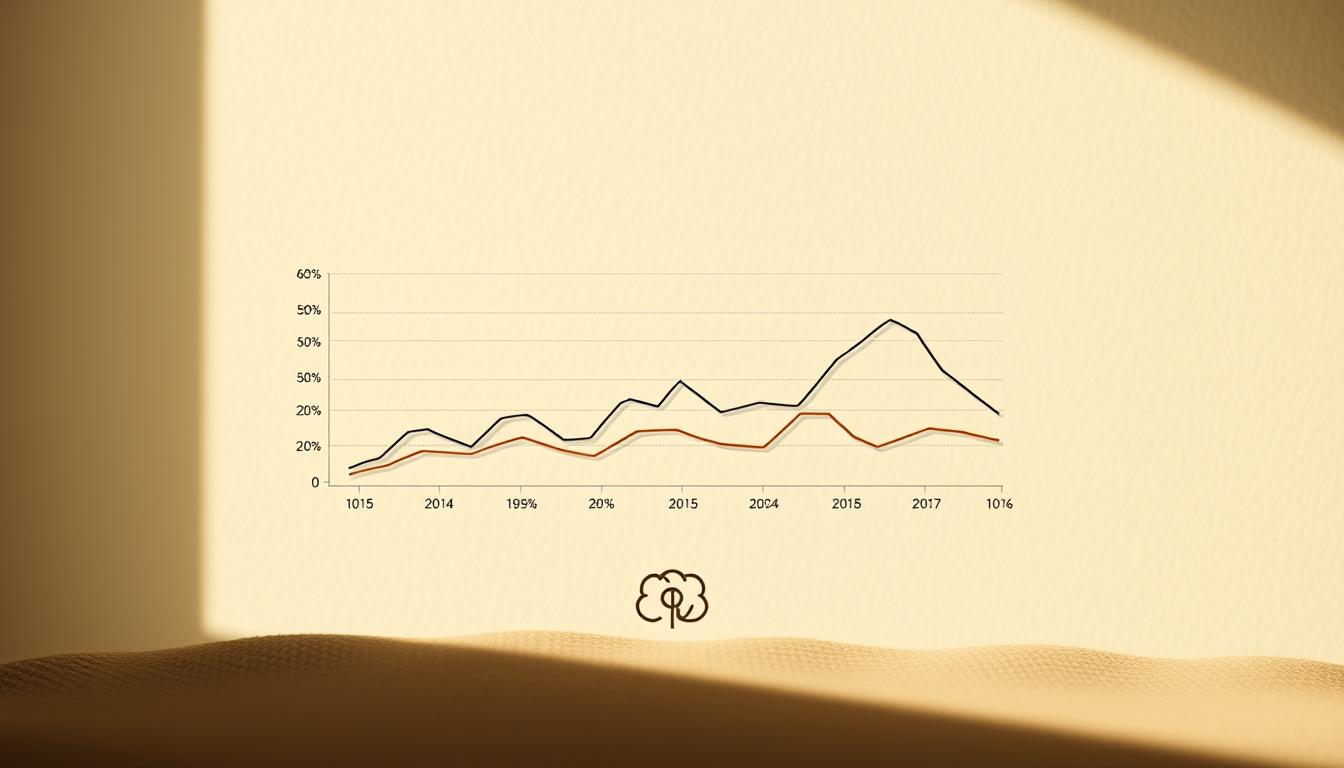I am a participant in the Amazon Services LLC Associates Program, an affiliate advertising program designed to provide a means for sites to earn advertising fees by advertising and linking to Amazon.com and affiliated sites. This post contains affiliate links. Privacy Policy
Your Guide to Understanding Common Mental Health Disorders
Do you know how mental health disorders affect people and our society?
It’s important to understand common mental health conditions today. Our world is moving fast, and these issues are becoming more common. The numbers show us how serious this problem is. We must talk about it and find ways to help.

You can help change how people see mental health. By learning more, you can support those who need it. We’ll explore the different mental health disorders and why they matter so much.
Best brain supplement
Key Takeaways
- Understanding the prevalence of mental health disorders is crucial.
- Mental health conditions affect individuals and society significantly.
- Breaking the stigma around mental health is essential.
- Being informed is the first step towards support.
- Mental health statistics highlight the need for awareness.
The Current State of Mental Health in America
Mental health is a big issue in America today. The fast pace and stress of modern life can harm our mental health. It’s key to know where we stand with mental health.
Defining Mental Health Disorders
Mental health disorders affect how we think, feel, and act. They can change our daily life and how we connect with others. A mental health disorder definition includes anxiety, mood, and trauma-related disorders. Knowing about these conditions helps us support and help others.
The Growing Recognition of Mental Health Challenges
Recently, more people in America have talked about mental health challenges. Mental illnesses are now seen as a big health issue. This has helped reduce the stigma, making it easier for people to get help.
| Mental Health Condition | Prevalence | Impact |
|---|---|---|
| Anxiety Disorders | 19.1% of adults | Affects daily life and relationships |
| Mood Disorders | 9.7% of adults | Impacts emotional well-being and daily functioning |
| Trauma-related Disorders | 6.8% of adults | Affects emotional regulation and relationships |
Understanding mental health in America helps us tackle its challenges. We can work towards a better environment for those with mental health disorders.
How Common Are Mental Health Disorders?
Did you know how common mental health disorders are worldwide? They affect millions of people, making them a big public health issue.
Global Prevalence Statistics
About 1 in 4 people will face a mental health disorder at some point. This means hundreds of millions worldwide deal with depression, anxiety, and substance abuse.
U.S. Mental Health Statistics
In the U.S., mental health disorders frequency is very high. Almost 1 in 5 adults has a mental illness each year. Young adults, especially those 18-25, are hit hard.
Prevalence by Age Groups
Mental illness rates change with age. Older adults (65 and up) have lower rates than younger people. But, they’re more likely to get depression and dementia.
Prevalence by Gender and Demographics
Some groups face higher risks for certain mental health issues. Women often deal with depression and anxiety more than men. Men, however, face higher rates of substance use disorders. Knowing these differences helps us focus our help better.
| Demographic | Mental Health Condition | Prevalence Rate |
|---|---|---|
| Young Adults (18-25) | Any Mental Illness | 30.6% |
| Women | Depression | Higher rates |
| Men | Substance Use Disorders | Higher rates |
Trends in Mental Health Disorder Rates
The rates of mental health prevalence are going up, especially among the young. Stress, social media, and more open talks about mental health are some reasons.
We need to keep watching these trends and adjust our plans to meet the changing mental health needs.
Understanding the Most Common Mental Health Disorders
Exploring mental health can be complex. It’s key to know the common disorders. These conditions vary and can hit anyone, no matter their background. Knowing the types is the first step to getting help.
Anxiety Disorders
Anxiety disorders are very common. They cause too much fear, anxiety, and avoiding things that get in the way of daily life.
Generalized Anxiety Disorder
This is when you worry too much about everyday things, even when there’s no reason to.
Panic Disorder
It’s about sudden, scary feelings that happen without warning. These feelings can also bring physical symptoms.
Social Anxiety Disorder
This is a fear of being judged in social or performance situations.
Specific Phobias
It’s a strong fear of something specific, like an object or situation.
Mood Disorders
Mood disorders change how you feel, affecting your daily life.
Major Depressive Disorder
This is feeling sad, hopeless, and not enjoying things for a long time.
Bipolar Disorder
It’s about extreme mood swings. You might feel very high (mania or hypomania) or very low (depression).
Trauma and Stress-Related Disorders
These disorders come from traumatic events. They cause a lot of distress or make it hard to function.
Post-Traumatic Stress Disorder (PTSD)
It happens after a scary event. You might have flashbacks, severe anxiety, and can’t stop thinking about the trauma.
Adjustment Disorders
This is when you struggle to deal with a big change in life.
Other Common Mental Health Conditions
There are other important mental health conditions too.
Obsessive-Compulsive Disorder (OCD)
OCD is about unwanted thoughts (obsessions) and doing the same things over and over (compulsions).
Eating Disorders
Eating disorders are serious. They involve abnormal eating habits that can harm your health.
It’s important to understand these disorders to support those affected. Recognizing signs and symptoms helps them on their path to recovery.
The Impact of Mental Health Disorders on Daily Life
It’s important to know how mental health disorders affect our daily lives. They can impact many areas, like personal relationships, work, school, and even our physical health.
Effects on Personal Relationships
Mental health issues can make it hard to keep up with family and friends. You might feel irritable, withdraw, or lose interest in social activities. Effective communication is crucial. Talking openly about your mental health can help your loved ones understand and support you better.
Impact on Work and Academic Performance
Mental health disorders can really affect your job or school performance. Symptoms like trouble focusing, memory problems, or lack of motivation can make it tough to do well. Seeking professional help and finding ways to cope can help you do better.
Physical Health Consequences
Mental health issues can also harm your physical health. For example, stress from anxiety or depression can cause heart problems, weaken your immune system, or upset your stomach. It’s important to stay healthy by exercising regularly and eating well.
| Aspect of Life | Impact of Mental Health Disorders | Mitigation Strategies |
|---|---|---|
| Personal Relationships | Strained connections, social withdrawal | Open communication, seeking support |
| Work/Academic Performance | Reduced productivity, difficulty concentrating | Professional help, coping strategies |
| Physical Health | Cardiovascular diseases, weakened immune system | Healthy lifestyle, regular exercise, balanced diet |
Breaking the Stigma Around Mental Health
You can help break the stigma around mental health by learning and sharing what you know. Mental health stigma is a big problem. It hurts not just those with mental health issues but also their families and communities.
Misconceptions About Mental Health
There are many wrong ideas about mental health. Some think it shows weakness or that you can just “snap out” of it. These wrong ideas make it tough for people to ask for help.
The Importance of Awareness
It’s vital to raise mental health awareness to fight stigma. Knowing the truth about mental health disorders helps us be more supportive. Education and talking openly are important steps.
Reducing Stigma
So, how can you help reduce mental health stigma? Begin by talking openly about mental health, listening without judging, and encouraging others to share. This way, you help build a supportive environment for mental health.
Treatment and Support Options
It’s key to know your treatment and support options for mental health. Managing it well often means using both professional help and self-care.
Professional Treatment Approaches
There are many professional treatments for mental health issues. They’re tailored to fit your needs. These might include:
Psychotherapy
Psychotherapy, or talk therapy, is a common method. You work with a therapist to understand and manage your condition. It helps you learn coping strategies and improve your mental health.
Medication Management
Medication management uses drugs to control symptoms of mental health disorders. It’s often used with psychotherapy.
Integrated Treatment Approaches
Integrated treatment approaches mix different therapies, like psychotherapy and medication. This holistic plan is great for complex mental health issues.
Self-Care Strategies
Self-care is also crucial for managing mental health. It includes regular exercise, a healthy diet, mindfulness, and staying connected with others. Adding these to your daily routine can boost your well-being and resilience.
Finding Help and Support Resources
Finding the right support resources for mental health is vital. Look for mental health professionals, join support groups, and use online resources. You’re not alone; many resources are here to help you.
Conclusion
Mental health disorders are a big issue in the United States, affecting millions. It’s key to understand these disorders to tackle the challenges they bring. By knowing how common mental health issues are, we can help those affected more.
Mental health awareness is very important. When we talk more about mental health, we help people feel less ashamed to ask for help. This helps not just the person but also their families and communities.
If you’re dealing with mental health issues or supporting someone who is, remember it’s okay to ask for help. The right treatment and support can make a big difference. Let’s keep working together to make a society that supports mental health for everyone.
FAQ
What are the most common mental health disorders?
Common mental health issues include anxiety, mood disorders, and trauma-related disorders. Other conditions like OCD and eating disorders are also common.
How prevalent are mental health disorders globally?
Mental health issues affect millions worldwide. Nearly one in four people will face a mental health disorder at some point.
What is the prevalence of mental health disorders in the United States?
In the U.S., many people deal with mental health issues each year. The numbers vary based on age, gender, and other factors.
How do mental health disorders affect daily life?
Mental health issues can greatly impact daily life. They can affect personal relationships, work, and physical health. It’s important to understand this to address these issues effectively.
What are some common misconceptions about mental health disorders?
Many people think mental health issues show weakness or can be overcome easily. Education helps clear up these myths.
What treatment options are available for mental health disorders?
Treatments include psychotherapy, medication, and self-care. Finding the right mix is key to managing these conditions.
How can I find help and support resources for mental health disorders?
Look for help from mental health professionals, support groups, and online resources. Being proactive in seeking help is crucial.
What can be done to reduce the stigma around mental health?
We can fight stigma by raising awareness, talking openly, and debunking myths. Together, we can support those with mental health issues.
I am a participant in the Amazon Services LLC Associates Program, an affiliate advertising program designed to provide a means for sites to earn advertising fees by advertising and linking to Amazon.com and affiliated sites. This post contains affiliate links. Privacy Policy


